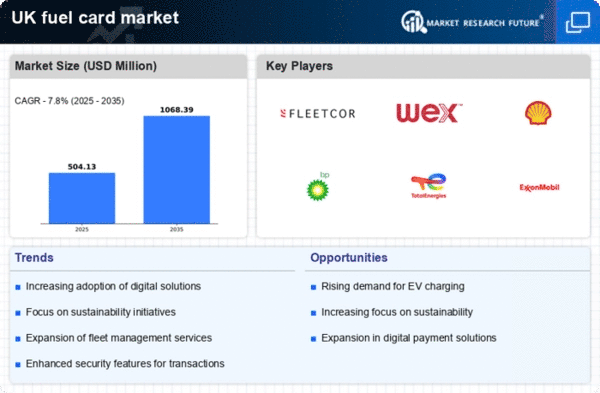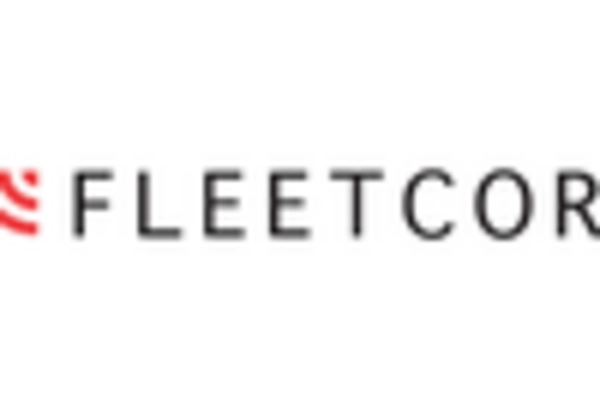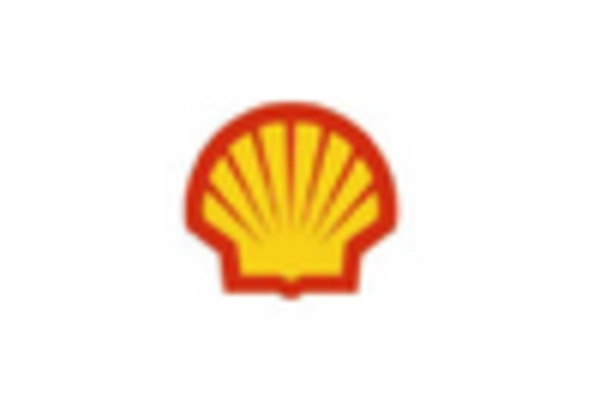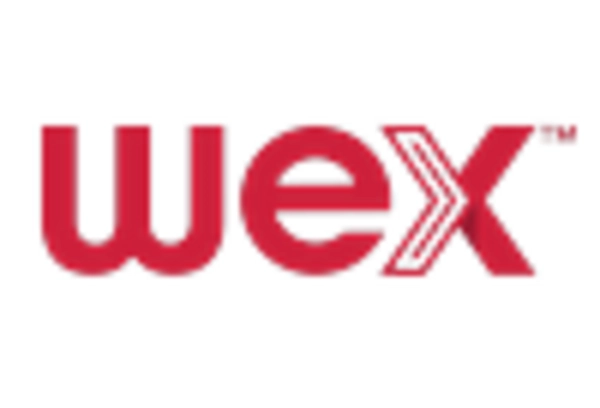Rising Fuel Prices
The fuel card market is experiencing a notable impact from the rising fuel prices in the UK. As fuel costs continue to escalate, businesses are increasingly seeking ways to manage their fuel expenditures effectively. Fuel cards offer a solution by providing access to discounted fuel rates and enabling better tracking of fuel consumption. In 2025, the average price of petrol in the UK is projected to be around £1.50 per litre, which may drive more companies to adopt fuel cards as a means of controlling costs. This trend suggests that the fuel card market will likely expand as businesses prioritize cost efficiency in their operations.
Focus on Operational Efficiency
The fuel card market is being driven by a heightened focus on operational efficiency among UK businesses. Companies are continually seeking ways to reduce costs and improve productivity, and fuel management is a critical area of focus. Fuel cards provide businesses with tools to monitor fuel usage, identify inefficiencies, and implement cost-saving measures. In 2025, it is projected that businesses will increasingly prioritize fuel management strategies, potentially leading to a surge in fuel card adoption. This trend suggests that the fuel card market will likely grow as organizations strive to enhance their overall operational performance.
Increased Fleet Management Needs
The fuel card market is significantly influenced by the growing complexity of fleet management in the UK. Companies are increasingly recognizing the importance of efficient fleet operations, which include fuel management. Fuel cards facilitate this by offering detailed reporting and analytics on fuel usage, helping businesses optimize their fleet performance. In 2025, it is estimated that the number of registered vehicles in the UK will exceed 40 million, leading to a heightened demand for effective fuel management solutions. This trend indicates that the fuel card market will continue to thrive as businesses seek to enhance their operational efficiency.
Regulatory Compliance Requirements
The fuel card market is shaped by the stringent regulatory compliance requirements in the UK. Businesses are mandated to adhere to various environmental and taxation regulations, which necessitate accurate fuel tracking and reporting. Fuel cards assist companies in maintaining compliance by providing detailed transaction records and facilitating easier audits. In 2025, the UK government is expected to implement stricter regulations regarding fuel emissions, which may further drive the adoption of fuel cards. This suggests that the fuel card market will likely see growth as businesses strive to meet compliance standards while managing their fuel expenses.
Shift Towards Digital Payment Solutions
The fuel card market is witnessing a shift towards digital payment solutions, reflecting broader trends in the UK economy. As businesses increasingly adopt cashless transactions, fuel cards are becoming more appealing due to their convenience and security. In 2025, it is anticipated that over 70% of fuel transactions in the UK will be conducted electronically, which may enhance the attractiveness of fuel cards. This transition indicates that the fuel card market could expand as companies seek to streamline their payment processes and improve transaction efficiency.















